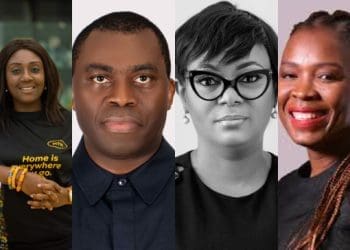MTN Ghana has pledged fresh investments to accelerate the growth of eSports in the country, promising to make gaming more affordable, accessible, and inclusive for millions of young Ghanaians.
The announcement was made at the MTN DigiFest 2025 Gaming Focused Group Session in Accra, which convened industry leaders, gamers, policymakers, and tech advocates to chart the future of the country’s fast-emerging digital sport.
The session spotlighted Ghana’s huge market potential but also underscored the urgent need for a national eSports policy.
MTN’s Next Play
MTN Ghana’s Manager for Video and Gaming, Yaw Antwi Boadu, revealed that the company is exploring the rollout of specialised gaming data bundles to cut costs and expand access.
“Our internet infrastructure is already powering the industry. The next step will be to create tailored packages that allow gamers to fully participate.”
“Even before the community calls us in, we see where eSports is going, and we want to be part of it.” He said, stressing that MTN’s support is proactive.
He added that the company views eSports as more than entertainment.
“Gaming is part of the digital economy, and investing in it means creating opportunities for Ghana’s youth,” he said.
The policy gap
Despite steady growth, stakeholders argued that eSports risks stalling without government recognition and regulation.
CEO of PopOut/Esports Academy and Vice President of the Esports Association of Ghana, Maximus Ametorgoh, called on the government to classify eSports as both an economic and sporting activity.
“eSports is not gambling. It’s skill-based competition—the digital form of football, basketball, or racing.”
“Other countries already have policies in place, but Ghana does not. We are engaging regulators like the NCA and National Sports Authority to close this gap,” he explained.
A global game
Ametorgoh pointed to global examples to emphasise the stakes.
Saudi Arabia has committed $60 billion to eSports, while the recent World Cup in Riyadh offered a record $70 million prize pool.
“Even finishing 20th in some tournaments can earn you $5,000. Ghana cannot afford to miss out,” he said, noting Ghana’s participation in African and Afro-Arab competitions and MTN’s sponsorship of Conquest, one of West Africa’s largest eSports events.
Big numbers, bigger potential
Data presented at the forum showed that out of Ghana’s 34.7 million people, 24 million are online, with 8.8 million actively gaming and more than one million console owners.
Gaming has now overtaken video-on-demand, music, and e-publishing as Ghana’s top digital media spend.
Globally, the video game industry is on track to hit $500 billion by 2030—more than the combined revenues of film and music.
“The sector is multidisciplinary,” Ametorgoh said. “It creates space for developers, coders, animators, sound designers, commentators, content creators, and even cosplayers.”
Barriers remain
Yet challenges persist. Kwesi Hayford, President of the Esports Association of Ghana, highlighted the high costs of gaming equipment, data, and software updates.
“Imagine buying a $100 game and still spending on 60GB updates. We need partners like MTN to negotiate with PlayStation and Xbox and explore off-peak data packages,” Hayford said, adding that professionalisation is equally key. “Gamers must form registered teams to attract sponsorships and international exposure.”
Women powering change
General Secretary of the Association and Team Manager of PlayProvince, Dabi Diamond, said the rise of women in eSports is reshaping the ecosystem.
“Beyond players and tournaments, there’s an entire industry of organisers, shoutcasters, and production teams. Many who began as gamers are now running the show,” she said, adding that this shift is diversifying the sector while opening opportunities for women in Ghana’s digital economy.
The way forward
The DigiFest 2025 session ended with consensus: Ghana has the players, infrastructure, and market to become a continental eSports hub.
But to get there, the country must establish a clear policy framework and forge stronger partnerships across government, private sector, and civil society.
“eSports is not just about gaming,” one participant summed up. “It’s about jobs, skills, innovation, and putting Ghana on the global stage.”













